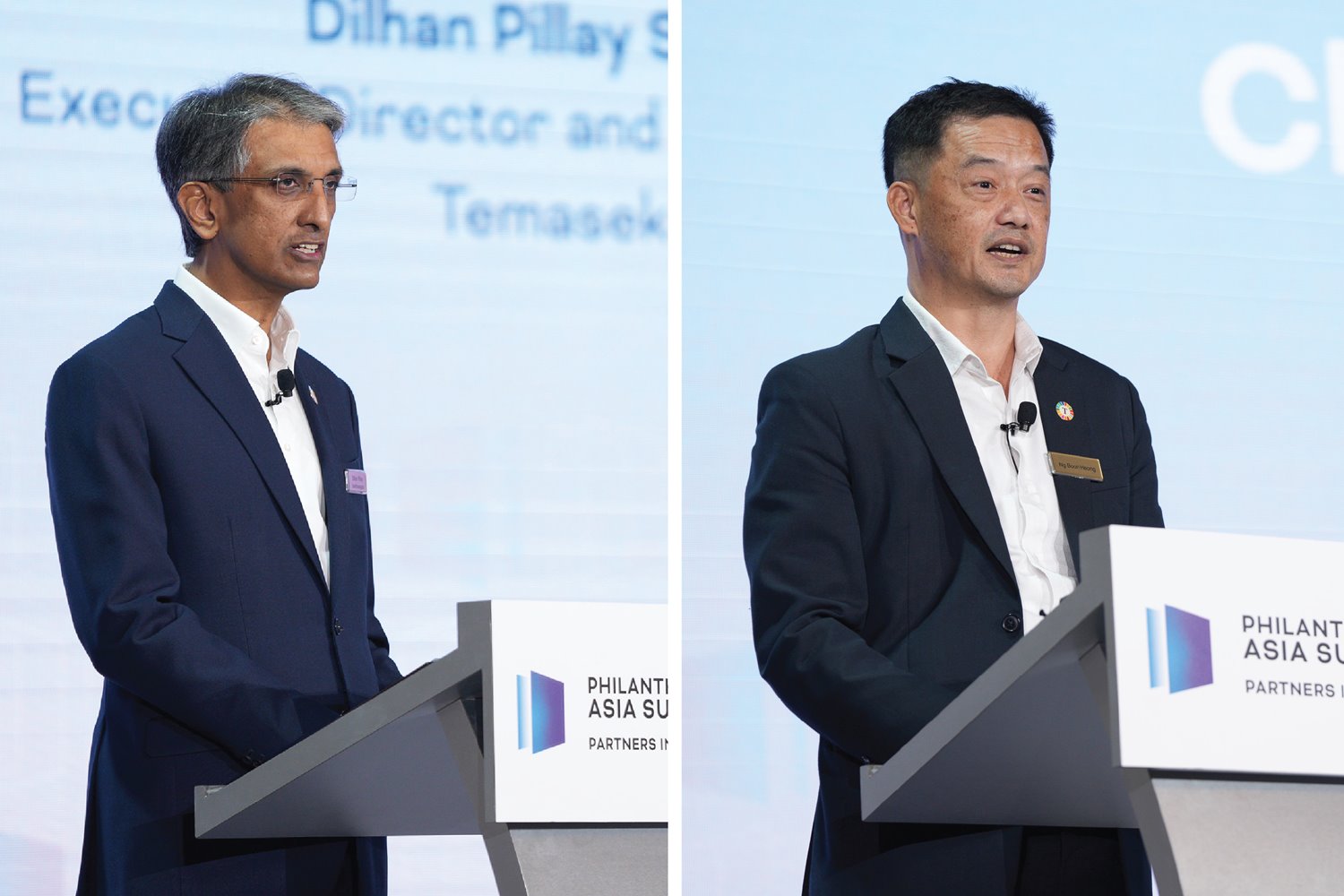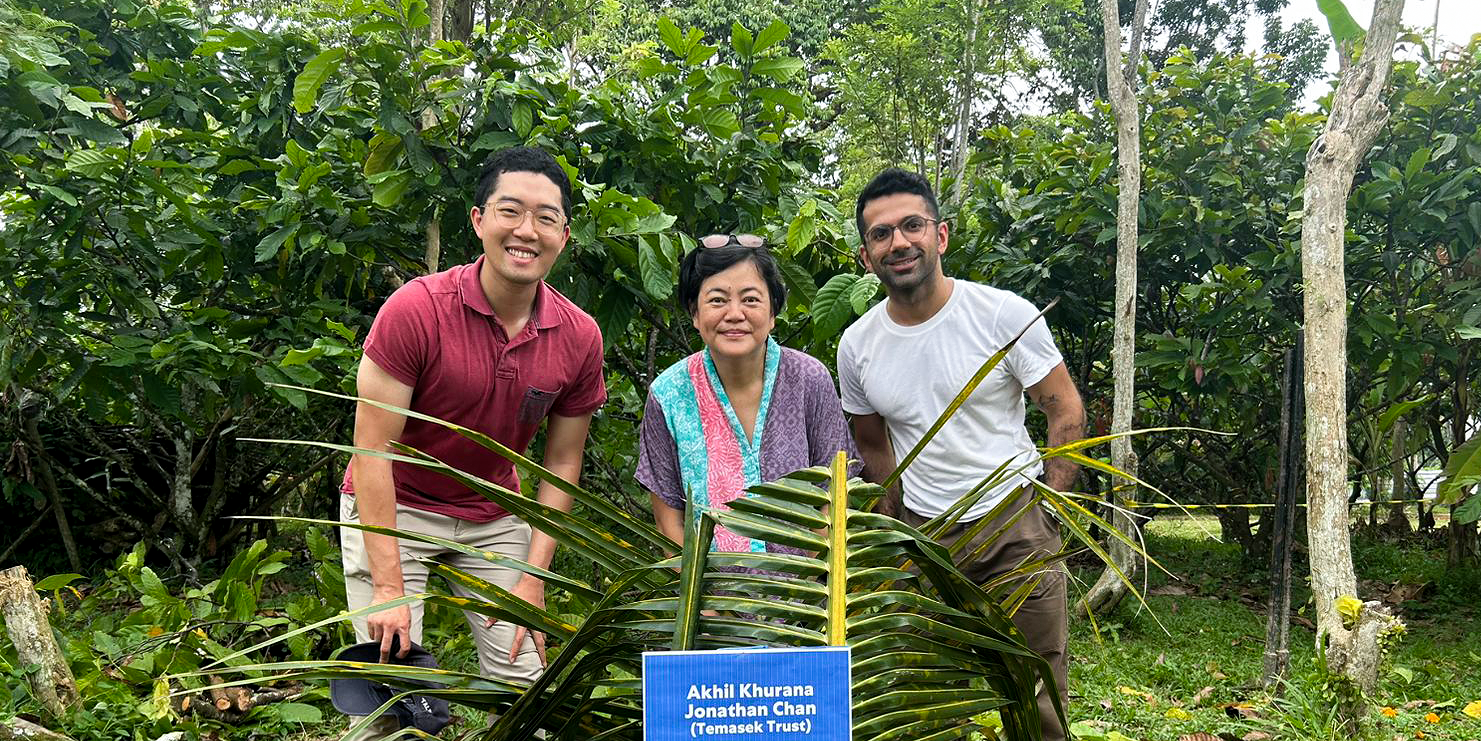(Left: Mr Dilhan Pillay Sandrasegara, CEO of Temasek Holdings, delivering the welcome address; Right: Mr. Ng Boon Heong, CEO of Temasek Foundation, delivering the closing remarks. Photo credit: Temasek Foundation)
Covid-19 has once again reinforced the critical importance of cooperation in battling the pandemic in today’s highly connected world. With the aim to catalyse partnerships and activate multi-sector stakeholders around the world to tackle
these challenges collectively, Temasek Foundation, supported by key partners, launched the inaugural Philanthropy Asia Summit on 15 Nov 2021 in Singapore.
Mr Dilhan Pillay Sandrasegara, the Executive Director and Chief Executive Officer (CEO) of Temasek Holdings, highlighted in his opening remarks that the challenges facing humanity are affecting our social resilience and may be cause for pessimism. However, with partnerships and collaboration across geography and sectors, we can make a difference together.
A one-day event held in a hybrid form at the Ritz-Carlton, Millenia Singapore, the Summit was themed ‘Advancing Human Security and Community Resilience’ highlighting six Calls-To-Actions (CTAs) anchored on three focus areas, namely Climate Action and Sustainable Communities, Inclusive Education and Pandemic Security.
Climate change is undoubtedly one of the most pressing issues of our time. The focus area of Climate Action and Sustainable Communities encompasses two CTAs – the Mangrove 40 (M40) Initiative developed by UBS Optimus Foundation and Earth Security and the Accelerating Circular and Resilient Cities programme initiated by Resilient Cities Network. Acknowledging mangroves’ efficiency in carbon sequestration and the potential economic value to local communities, M40 supports the nature-based solution of conserving and restoring mangrove forests across 40 locations worldwide. The second CTA focuses on transformative circularity of rapidly urbanising cities, which often generate enormous waste and greenhouse gases. Twenty projects will be curated under this initiative to lead nine cities towards circular and resilient economies over the next 24 months.
Inclusive Education addresses the education crisis caused by the pandemic. According to the United Nations, Covid-19 disrupted the learning process of 1.6 billion children from 188 countries across the world. The first CTA by Room to Read aims to bridge the gap by offering online learning resources to ensure continued learning during school closures. Currently present in 20 districts in Indonesia, Room to Read seeks to further expand the programme in Indonesia and scale it to Vietnam, South Africa and India. The second CTA, High Touch High Tech for All (HTHT), harnesses Artificial Intelligence (AI) learning technology to provide students with tailored lessons and personalised guidance. With the goal to reach 20,000 students and 1,200 teachers and school leaders, the programme hopes to catalyse new funding and partnerships and galvanise more actions in Cambodia, Indonesia, and the Philippines.
The global response to Covid-19 has revealed enormous inequalities and a lack of inclusion. The two CTAs under the last focus area of Pandemic Security strive to improve inclusivity in pandemic responses. The first CTA by The Rockefeller Foundation’s Pandemic Prevention Institute aims to enhance pandemic preparedness and prevention. By expanding the network of scientific centres, the initiative supports national surveillance capabilities with innovations in pathogen discovery and real-time analytics. The Johns Hopkins Bloomberg School of Public Health champions the second CTA with a proposal to establish a Community Pandemic Innovation Lab that researches on innovative pandemic management practices for the most vulnerable populations. Such resources will not only ensure more equitable health outcomes but also enhance trust and support within communities.
Mr Ng Boon Heong, the CEO of Temasek Foundation, pointed out in his closing remarks that our work was just beginning. The CTAs offer us an opportunity to contribute towards initiatives that address climate change and build stronger social cohesion and resilience. We hope that in the long run, the Philanthropy Asia Summits could support a collaborative framework for philanthropy, enable more collective actions to tackle complex challenges and achieve greater impact.
For more information on the inaugural Philanthropy Asia Summit and the Calls-To-Actions, please click here.

.jpeg?sfvrsn=38539f0c_1)

